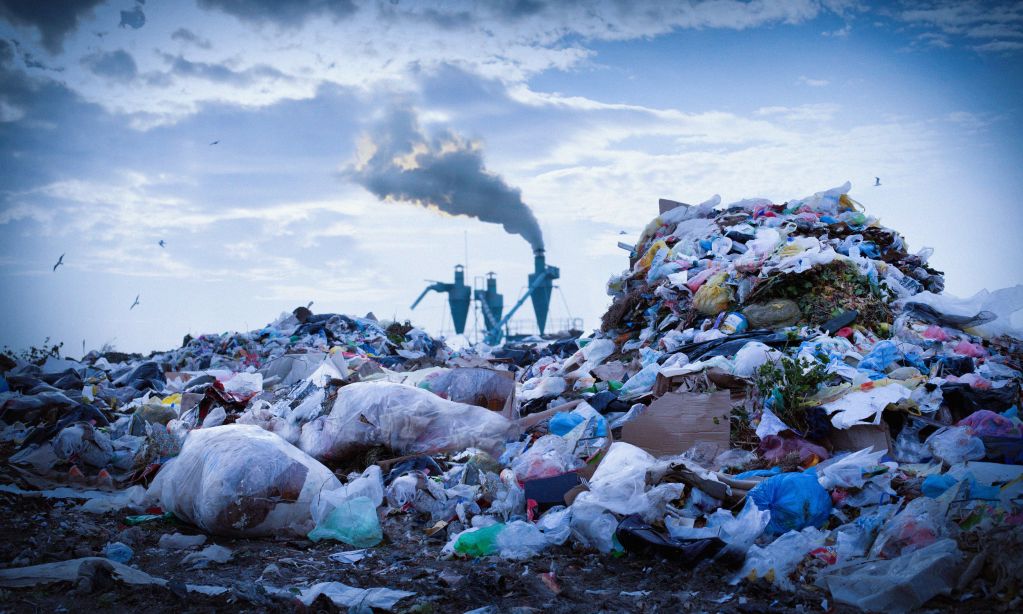Single-use plastics are a major issue for the environment and public health. They are used for a moment and stick around for an eternity, accumulating in the oceans, creating a patch of garbage twice the size of Texas, and clogging up everything from parks to human bodies when they break down into microplastics.
Recycling might seem like an easy solution, but recycling can’t solve this problem. Many plastics cannot be recycled—and the ones that can usually aren’t, with only nine per cent of the three million tonnes of plastic used in Canada recycled yearly.
Nevertheless, the message that recycling is good for the planet is pervasive. And while recycling is preferable to landfills—at least in theory—our systems are not equipped to deal with the sheer amount of plastic waste that consumers and corporations produce.
The plastics problem wasn’t always this bad. Consider the soda bottle. In the 1960s, beverage companies like Coca-Cola started shifting from a localized return-bottling system—one in which consumers returned glass soda bottles to facilities for cash, similar to how beer bottles work today—to single-use plastic containers. The change gave the beverage companies more control over distribution and saved money from return-bottle fees. Plastic bottles were also wildly popular with consumers. But it came with a not-so-hidden cost—an immense amount of pollution.
Governments attempted to address the pollution with policies that would make polluters pay, and bans on single-use packaging. But beverage companies responded with aggressive public relations campaigns which promoted an anti-litter narrative for consumers, effectively shifting the responsibility for increased trash onto individual consumers rather than the companies producing the trash. In tandem, they lobbied public officials for another solution: recycling.
This consumer-centered, tax-funded collection system made single-use packaging seem fine while shifting the cost from corporations to the general public. And today, we keep doing it.
Recycling efforts are primarily the responsibility of municipal governments, who manage the collection and recycling process, while provincial and territorial governments create waste reduction policies and programs and monitor recycling facilities. These efforts are generally government funded but still come at a hefty cost to municipalities.
Even with the implementation of extended producer responsibility—a system for charging companies the full cost of dealing with their plastic packaging—there is little evidence demonstrating that municipal recycling costs are contained. In fact, these costs continue to rise annually.
Nevertheless, recycling is not done because it is lucrative. It’s meant to increase our environmental sustainability and reduce resource extraction. And in the case of glass, aluminum, paper, and cardboard recycling, recycling is generally worth the effort. But plastics are different—most plastics can’t be recycled depending on the material they are made of, or don’t get recycled because they are often contaminated with food residue.
Downstream solutions that manage a mess after it’s made are far more costly than upstream solutions that stop the problem at its root. That’s especially true when it comes to single-use plastics. It’s time to fully embrace the reduce and reuse instead of listening to corporations crying “recycle.”
Canada is taking small steps to do that. Since 2022, the Canadian federal government has prohibited the sale of manufactured and imported plastic checkout bags, cutlery, food service wares, stir sticks and straws to reduce plastics pollution. They are targeting single-use plastics that are frequently not recycled and already have ready alternatives.
While this is a great step to protect our environment and our bodies, plastics companies like Dow Chemical Canada, Imperial Oil, and Nova Chemicals don’t approve. These companies are taking the Federal government to court to fight the regulation, partially under the premise that they are unconstitutional, as waste management is primarily under the purview of provinces and municipalities.
But corporations should not determine our regulations—the Canadian government should. Canadians don’t have to keep cleaning up a mess for the benefit of corporations. The federal government is taking steps in the right direction with these bans, but it may be up to the provinces and municipalities to uphold the Federal government’s ban should corporations successfully win in court. Both federal and provincial governments must fight corporate resistance and aid in the effort to ultimately phase out single-use plastics.







